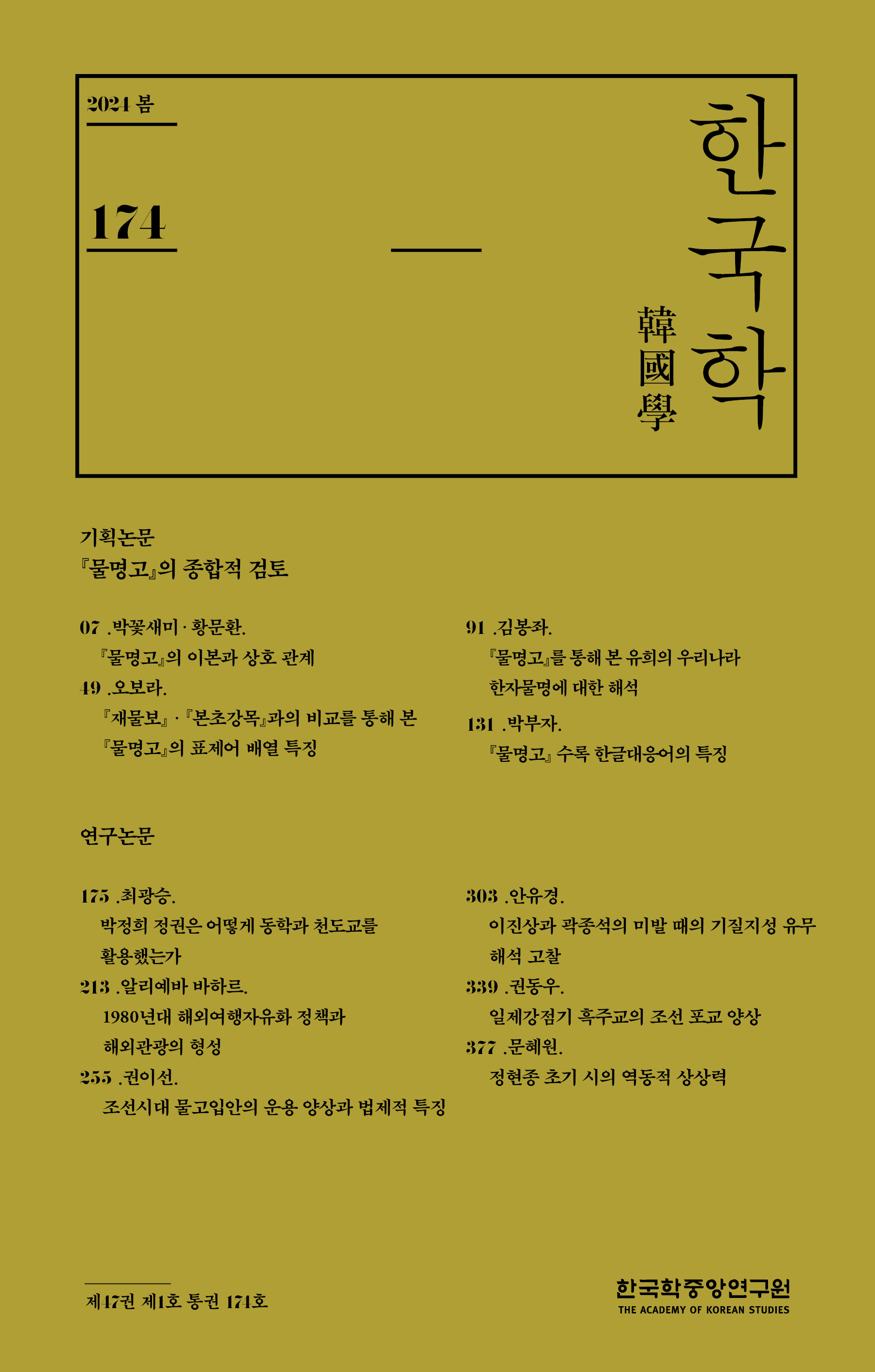
- P-ISSN 2671-8197
- E-ISSN 2733-936X
.jpg)
This article reveals how uniquely Chae Mansik portrayed bourgeois realism with satire and nihilism in his work. It was found that since middle school, Chae read all of Turgenev’s works and was unconsciously influenced by them. In particular, Turgenev’s collection of short stories Yeop‒In‒il‒gi(『獵人日記』, 1852) was found to be highly influential. Chae’s novels are characterized by techniques of satire, nihilism as the spirit or mood and praises of spring, their narrative focus on the main characters, graceful narrative flow, and vivid descriptions of nature and rural scenery. These characteristics are also prevalent in Turgenev’s literature despite the differences between the life of Chae and his. Turgenev’s novels envision the potentialities of the Russian society’s future through the characters of wise serfs, farmers, and populace rather than greedy landowners or intellectual revolutionists. However, Chae’s novels do not portray any characters that positively influenced reformation during the Liberation Period of Korea. Instead, Chae immersed in creating self-reflective novels on his collaboration with Japanese colonialists in the last period of Japanese imperialism.
『개벽』,
『문장』,
『별건곤』,
『삼천리』,
『여성』,
『조광』.
《동아일보》,
《매일신보》,
《조선일보》,
《조선중앙일보》.
채만식, 『채만식 단편집』. 학예사, 1939.
채만식, 『잘난 사람들』. 민중서관, 1948.
채만식, 『채만식전집 1‒10』. 창작과 비평사, 1989.
투르게네프 저, 김학수 역, 『사냥꾼의 수기/첫사랑/산문시』. 동서문화사, 2016.
투르게네프 저, 전희직 역, 『첫사랑·전날밤』. 혜원출판사, 2003.
투르게네프 저, 라승도 역, 『봄 물결』. 지만지, 2008.
투르게네프 저, 반광식 역, 『첫사랑·아버지와 아들』. 일신서적출판, 1995.
투르게네프 저, 김학수 역, 『처녀지·루딘』. 범우사, 1998.
투르게네프 저, 이철 역, 『아버지와 아들·귀족의 보금자리·엽인일기』. 휘문출판사, 1977.
권영민·박중소·오원교·이지연, 『한국근대문학의 러시아문학수용』. 서울대학교출판문화원, 2016.
김병욱 외 엮음, 『도이치 문학 용어 사전』. 서울대학교출판부, 2001.
김병철, 『서양번역문학논저연표』. 을유문화사, 1978.
김병철, 『한국근대번역문학사연구』. 을유문화사, 1988.
김윤식, 『한국근대문학론』. 한길사, 1982.
김윤식, 『채만식』. 문학과 지성사, 1984.
D. S. 미르스끼 저, 이항재 역, 『러시아문학사』. 문원출판, 2001.
마르틴 하이데거 저, 박찬국 역, 『니체와 니힐리즘』. 철학과 현실사, 2000.
박경수 편, 『안서 김억 전집 5‒문예비평론집』. 한국문화사, 1987.
박정선 편, 『언제나 지상은 아름답다』(임화 산문선집), 역락, 2012.
방민호, 『채만식과 조선적 근대문학의 구상』. 소명출판, 2001.
이항재, 『소설의 정치학: 뚜르게네프 소설 연구』. 문원출판, 1999.
정홍섭, 『채만식, 문학과 풍자의 정신』. 역락, 2004.
최동규, 『뚜르게네프 비교문학 비평연구』. 한국문화사, 1998.
손성준, 「투르게네프의 식민지적 변용: <사냥꾼의 수기>와 현진건의 단편소설을 중심으로」. 『민족문학사연구』 제54호, 2014. 4, 329‒368쪽.
엄순천, 「한국문학 속의 러시아문학」. 『인문학 연구』 제35권 1호, 2008, 93‒121쪽.
이종진, 「한국문학의 도스또옙스끼 수용과 그 현재적 의미」. 『인문과학』 29집, 1999, 301‒302쪽.
정호웅, 「채만식의 허무주의와 역사담당주체의 문제」. 『외국문학』 18, 열음사, 1989. 3, 232‒248쪽.
최동규, 「영웅의 사랑과 죽음: 『그 전야(前夜)』의 주제구성」. 『세계문학비교연구』 제54권, 2016.
최인선, 「니힐리즘: 새로운 지식인의 형상: 투르게네프의 『아버지와 아들』」. 『노어노문학』 제27권 제3호, 2015. 9, 119‒146쪽.